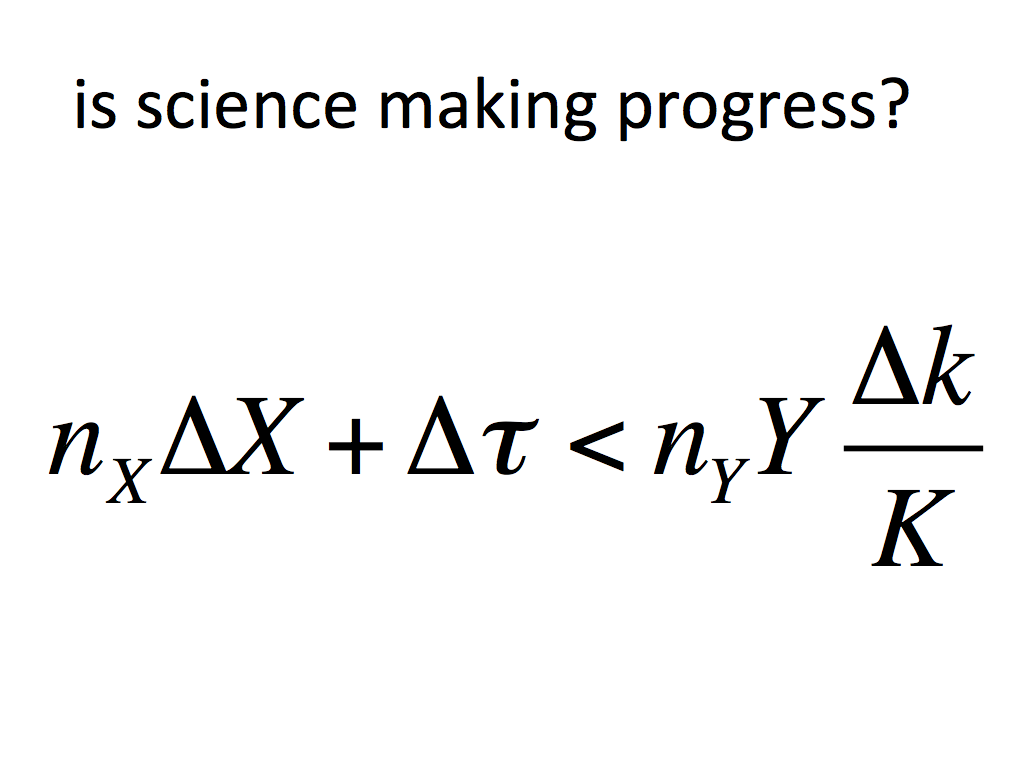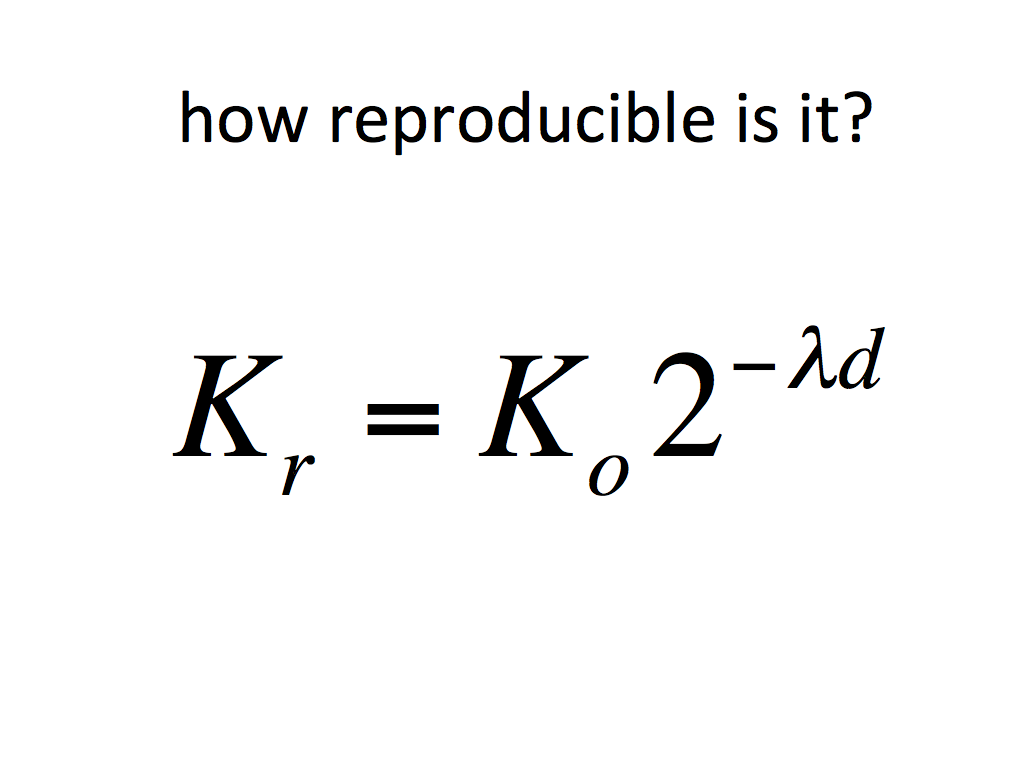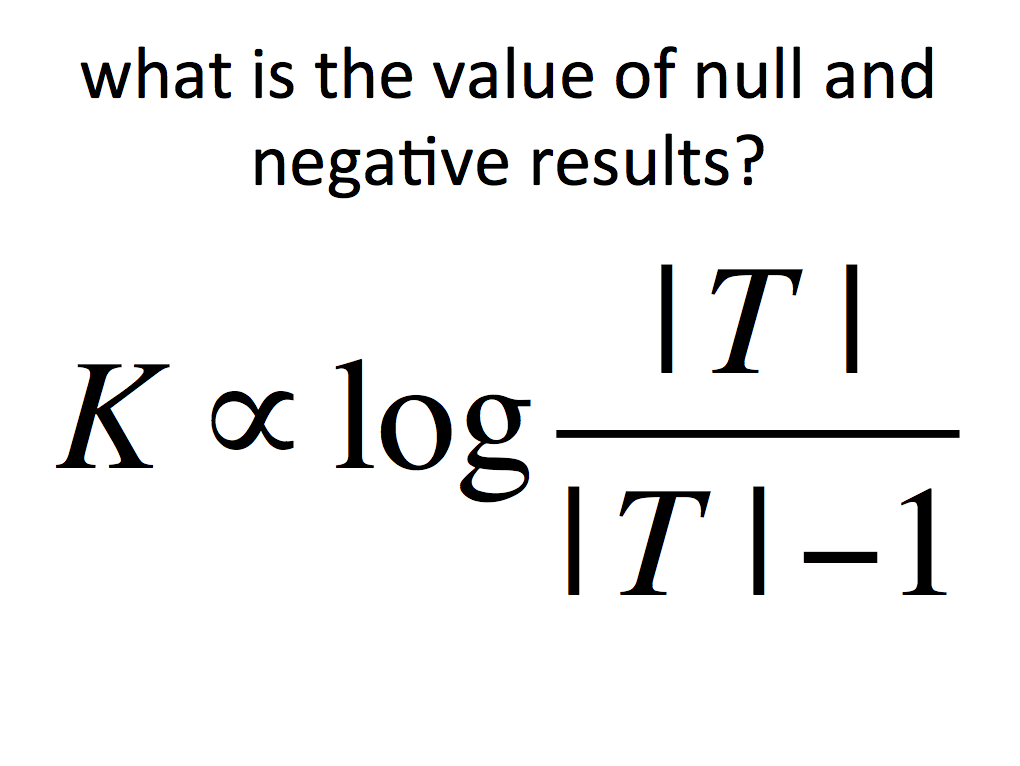Daniele Fanelli






- Science Foundation Ireland Summit 2023, Cork, IE, 2023, keynote: Research integrity: it’s complex, and complicated..
- 8th European Conference on Academic Integrity and Plagiarism, Porto, PG. 2022, keynote: Research integrity in a complex world..
- ENRIO 2021 conference, FI, Online, 2021, keynote: What challenges lie ahead for research integrity officers?.(video recording and slides).
- REWARD-EQUATOR conference, Berlin, DE, 2020, keynote: How explaining knowledge helps improve research. (videorecording)
- Meta-Science Symposium 2019, Stanford University, USA, invited talk: Low reproducibility as divergent information: A K-theory analysis of reproducibility studies (videorecording).
- Fixing Science: Practical Solutions for the Irreproducibility Crisis, National Academy of Scholars, Independent Institute, Oakland, CA, USA, invited plenary: Reproducibility reforms if there is no irreproducibility crisis. [videorecording]
- Fifth AgreenSkills meeting, Brussels, BE, 2019, keynote: Is science facing a crisis or an opportunity? Video here and slides (with corrections) here.
- 18th Congress of the International Union for the Study of Social Insects (Guaraja, BR, 2018), invited talk: Taking the pulse of social insects research.
- 9th International Conference on Complex Systems (Boston, MA, USA, 2018), talk: Towards a meta-theory of scientific knowledge.
- Research integrity and Data Management – Meeting the reproducibility challenges in research (University of Copenhagen, DK, 2017), invited talk: How and where can data management policies improve reproducibility and integrity?
- ASHG Conference (American Society for Human Genetics) 2017, Orlando, FL, USA, 2017, invited talk: Making genetics research more reproducible.
- Peer Review Congress, Chicago, IL, USA, 2017, plenary talk: Summary effect sizes in meta-analyses after removal of retracted studies from the pool of primary studies.
- 5th World Conference of Research Integrity, Amsterdam, NL, 2017, keynote: Conceptual challenges concerning re-analysis and replication practices in reproducible research. Audio and slides are available.
- 5th World Conference of Research Integrity, Amsterdam, NL, 2017, invited talk: How to help scientists own their mistakes.
- The 5th Workshop on Biostatistics and Bioinformatics, Altanta, GE, 2017, poster: Akaike Information Criterion as special case of K-function Towards a universal quantifier of knowledge.
- National Academy of Sciences Sackler Colloquium: Reproducibility of Research: Issues and Proposed Remedies, Washington, D.C, 2017. invited panellist.
- International conference “Researching with Integrity”, Tartu, EE, 2017, keynote:Benefits and challenges of defining scientific misconduct. Video available here.
- IV Brazilian Meeting on Research Integrity, Science and Publication Ethics (BRISPE), Goiânia, BR, 2016, keynote: The mystery of missing negative results: can we really blame editors and peer-reviewers?
- Computation+Journalism Symposium, Stanford, USA, 2016, invited panellist on Reproducible Journalism.
- MAER-Net (Meta-Analysis of Economics Research Network) Colloquium 2016, Little Rock, AR, USA, talk: Understanding bias via cross-disciplinary multi-level meta-meta-regression
- SIDO (Italian Otrhodontics Society), IT, 2016, invited lecture: The Future of Biomedical Research: Crisis or Opportunity?
- ESOF 2016 conference, Manchester, UK, session: Going viral: social media and the practice of science in society. invited speaker.
- Leverhulme-Bridges and Behavioural Science GRP Colloquium Series: Scientific Reproducibility, 2016, University of Warwick, UK. invited lecture: Is the file-drawer half empty or half-full?
- NRIN (Netherlands Research Integrity Network) Research Conference 2016, Amsterdam, NL. keynote: Is Dutch science at greater risk?
- Gaming Metrics, 2016 conference, UC Davis CA, USA. invited talk: Institutional pressures to publish: what effects do we see?
- The 2015 Southampton Conference on the Credibility of Research, University of Southampton, UK, 2015. invited talk: An overall empirical perspective of the scientific crisis.
- 15th ISSI Conference (International Society for Scientometrics and Infometrics), Istanbul, TU, 2015, talk: Are scientists really publishing more? co-authored with V Larivière.
- A new start for Europe: Opening up to an ERA of Innovation, European Commission, Brussels, BE, 2015, invited talk: What "causes" scien.fic misconduct? Honing in on evidence-based answers.
- World Conference of Science Journalists, Seoul, KR, 2015, 50 Shades of Scientific Fraud -- Why stem cell research is so prone to misconduct. invited speaker.
- 4th World Conference on Research Integrity, Rio de Janeiro, BR, 2015, invited talk: Research misconduct: Conceptions and policy solutions.
- 4th World Conference on Research Integrity, Rio de Janeiro, BR, 2015, talk: From countries to individuals: unravelling the causes of bias and misconduct with multilevel meta-meta-analysis. Fanelli D & Ioannidis JPA.
- 4th World Conference on Research Integrity, Rio de Janeiro, BR, 2015, talk: Promoting Research Integrity in Italy: the experience of the Research Ethics and Bioethics Advisory Committee of CNR. Co-authored with C Caporale.
- 4th World Conference on Research Integrity, Rio de Janeiro, BR, 2015, poster: What “causes” scientific misconduct? Testing major hypotheses by comparing corrected and retracted papers. Fanelli D, Costas R & V Larivière.
- 'Improving scientific practice: dealing with the human factors', seiminar, University of Amsterdam, 2014. invited talk: Science 2.0: A System Centred on Accurate Reporting.
- Presentation of the Danish Code of Conduct for Research Integrity, Copenhagen Business School, DK, 2014, keynote: Growing challenges for our growing integrity.Video recording and Related slides (pdf).
- 'Circling the square: Research, politics, media and impact' conference, University of Nottingham, 2014, invited talk: How to maintain integrity yet provide robust knowledge and the communication of uncertainty. my answer. Video of short talk and long debate.
- Inauguration of the new Chair in Methodology and Integrity, Vrije Universiteit Amsterdam, NL, 2014, invited talk: What can research on scientific misconduct tell us, and how can it mislead us?
- 82e Congrès de l'ACFAS, Association francophone pour le savoir, 2014, invited: L'intégrité dans la diversité des disciplines: vieille théorie pour nouveaux défis.
- First AgreenSkills meeting, Leuven, BE, 2013, keynote: Where do false and falsified results grow? How to weed them out? Evidence and theory. Video with slides.
- 8th World Conference of Science Journalists, Helsinki, FI, 2013, invited talk: Can we still trust science? Mostly yes.
- 14th ISSI Conference (International Society for Scientometrics and Infometrics), Vienna, AT, 2013. poster: Fanelli D. and W. Glänzel - Papers published in PNAS reflect the Hierarchy of the Sciences, in collaboration with W. Glänzel.
- 3rd World Conference on Research Integrity, Montreal, CA, 2013 talk: Statistical studies on errors, bias and fraud: Towards an evidence-based RCR?
- ORI at 20 (US Office of Research Integrity 20th year Celebration Conference), Baltimore, MD, 2013, invited talk: Measuring incidence, to understand causes.
- Northern Arizona University, Flagstaff, AZ, 2013, keynote for faculty and doctoral event: How international is the universality of science?
- Northern Arizona University, Flagstaff, AZ, 2013, invited seminar: Protecting the endless frontier: New problem, or never-ending challenge?
- 11th Ethical Forum, University Foundation, Brussels, Belgium, 2012, keynote: What science tells us about scientific fraud.
- EQUATOR Symposium 2012, Freiburg, DE, poster: Project for a scientific system based on transparency.
- 13th COLLNET Meeting, Seoul, S Korea, 2012, talk: When East meets West…does bias increase? A preliminary study on South Korea, United States and other countries.
- QUEST for Research Excellence (US Office of Research Integrity conference), Washington DC, USA, 2012, talk: Positive-outcome bias is increasing in most disciplines and countries.
- 17th International Conference on Science and Technology Indicators, Montreal, CA, 2012, poster: Fanelli D. and W. Glänzel - A Bibliometric test of the Hierarchy of the Sciences: preliminary results.
- 13th COLLNET (Collaboration in Science and in Technology) meeting, Istanbul, Turkey (2011). poster: A proxy for studying positive-outcome bias without meta-analysis.
- MAER-Net (Meta-Analysis of Economics Research Network) Colloquium 2011, Cambridge, UK, invited talk: Unravelling the causes of publication bias.
- 13th ISSI Conference (International Society for Scientometrics and Infometrics), Durban, South Africa, 2011, poster: A proxy for studying positive-outcome bias without meta-analysis.
- COPE (Committee on Publication Ethics), London, UK, 2011, invited talk, The ‘Bulk’ of the Iceberg (and what journals can do about it).
- XI Convegno Nazionale sulla Comunicazione della Scienza, SISSA Treste, IT, 2010, talk: Come la scienza fa notizia, e la notizia fa la scienza in Italia e Gran Bretagna.
- Science College 2010 event, Ruhr University, Bochum, DE, keynote: The mystery of the missing negative results
- European Science Foundation Member Organizations forum, 4th workshop, CNR, Rome, IT, 2010, invited talk: How common is it, and why?
- 4S (Society for Social Studies of Science) Annual Meeting, Tokyo, JP, 2010, talk: Do pressures to publish increase scientists’ bias? An empirical support from US states data?
- 2nd World Conference on Research Integrity, Singapore, 2010, invited talk: The Black, the White and the Grey Areas - Towards an international and interdisciplinary definition of scientific misconduct.
- 2nd World conference on Research Integrity, Singapore, 2010, poster: An enforceable definition of research misconduct and a system to implement it across disciplines and countries.
- 2nd World conference on Research Integrity, Singapore, 2010, poster: Martinson, BC, Fanelli D. - Prevalence of self-reported and observed misconduct in western countries.
- SEESHOP3 Meeting, Cardiff, UK, 2009, talk: Expertise and the hierarchy of the sciences: Should experts be weighted by the hardness of their field?
- 4S (Society for Social Studies of Science) Annual Meeting, Washington DC, USA, 2009, talk: Are behavioural and social sciences really less objective?
- ESRC Genomics Network Conference, Cardiff, UK 2009, poster: “Negative supports” support the hierarchy of the sciences.
- ESF-LiU Conference, “Philosophy for Science in Use”, Linköping, SW, 2009, poster: “Negative supports” support the hierarchy of the sciences.
- Science in Society conference, Cambridge, UK, 2009, talk: How many scientists fabricate and falsify research?
- ESF-ZIF conference, “Science and Values: the Politicization of Science”, Bielefeld, DE, 2009, talk: How many scientists fabricate and falsify Research?
- Research Conference on Research Integrity, Niagara Falls, USA, 2009, invited talk: How many scientists fabricate and falsify research?
Teaching and supervision of students
- (2017) Contributed to the courses: Scientific method and bias (MED73 N), and Stanford Biostatistics Workshop (BIODS/STATS 260),
- (2016) Lecturer at the BITSS Summer School (Berkeley Initiative for Transparency in the Social Sciences).
- (2013) Co-convenor with Prof. David Castle of the course “Science and Ethics”, University of Edinburgh (we designed the course, but I moved to Montréal before it was activated).
- (2012) Collaborated with Dr. Elizabeth Stevenson, School of Chemistry, in developing a Master in Science Communication and public engagement, University of Edinburgh.
- (2007-2008) Taught at the Lorenzo de’ Medici Institute, an international school based in Florence, Italy, a personally developed course “Love, Beauty and Natural Selection: Science and Myths”.
- (2015-present) Within Metrics, I supervise three postdoctoral researchers and three undergraduate students as research assistants
- (2013-2016) I was an external advisor on a PhD thesis about scientific misconduct, University of Rijeka School of Medicine, Croatia.
- (2010- present) I have supervised twelve undergraduate research assistants on various of my projects, training and leading teams of up to five at a time, in Edinburgh, Montréal and Stanford.
Seminars, workshops, public lectures
- The neglected importance of complexity in meta-research. invited seminar, Inserm workshop 277: Methods in meta-research: how to improve research practice. Bordeaux, FR Page and program.
- How an information metric could bring truce to the statistics wars. invited seminar, Phil Stat Seminar: The Statistics Wars and Their Casualties 2021. Link to video recording.
- Meet the experts: Daniele Fanelli. invited seminar, 5th World Conference of Research Integrity, Amsterdam, NL, 2017
- Benefits and challenges of defining misconduct, invited seminar, University of Konstanz, DE (2017)
- Scientific and ethical challenges in promoting research integrity, invited workshop on research ethics, Stnaford Biosciences Training program.
- Measuring scientific bias across disciplines and countries. invited lecture for the Workshop in Biostatistics, Department of Biomedical Data Science, Stanford University, CA (2017)
- Crisis in social science: Scientific misconduct. Lecture for the Berkeley Initiative for Transparency in Social Sciences Summer Institute, Berkeley, CA (2016)
- Are pressures to publish « the » problem, a boon in disguise, or no issue at all? METRICS forum, Stanford University (2015).
- Alternative publishing models; breakout session (moderator) within the NC3Rs (National Centre for the Replacement, Refinement and Reduction of Animals in Research) Workshop on Publication Bias, London (2015)
- The present, past and future of scientific misconduct; brown-bag seminar, University of Montreal (2014).
- Towards a science of scientific objectivity, seminar, Stanford University (2014).
- From misconduct to bias, through the Hierarchy of the Sciences, seminar, Centre Interuniversitaire de Recherche sur la Science et la Technologie Université du Québec à Montréal, CA (2014).
- Bias and misconduct: How? Why? What can be done? invited public lecture, Grey Matter event at deBuren, Ghent, BE (2013). Video of the talk
- Integrity meets social responsibility: practical applications of Singapore Statement n. 14, Three-session workshop that I organized, in collaboration wih Mark Frankel of AAAS, within the 3rd World Conference on Research Integrity (2013).
- Bias, misconduct and biomedical research - Overview of the evidence, Invited seminar, MRC Human Genetics Unit, University of Edinburgh-Western General Hospital (2012).
- What bias causes publication bias? Invited seminar, University of Konstanz, DE (2012).
- All sciences promise, can we predict which ones might not deliver? ISSTI retreat, UK (2012).
- Is bad science on the rise? Invited public lecture, Glasgow skeptics in the pub (2012)
- How accurately can we measure scientific accuracy? University of Leuven, (2012).
- Is bad science on the rise? Invited public lecture, Edinburgh Café Scientifiques (2011).
- From Comte, through Quine, to Chaos and back: a post-positivst account of the Hierarchy of the Sciences. ISSTI retreat, UK (2011).
- A post-postmodernist account of the Hierarchy of the Sciences. LSE ttt-series (London School of Economics, tea time talks), London, UK (2011).
- Research bias: causes, consequences, solutions. Invited workshop, Science College, Ruhr University, DE (2010).
- How to get picked up by the media. SSPS learning lunch, University of Edinburgh (2010).
- The global warming of debates. ISSTI retreat, UK (2010).
- Co-organizer of the public workshop The future of medicine: Innovation from bench to bedside, presented at ESRC Festival of Social Science 2009, and Young Scientists and Engineers Fair 2009.
- Siamo geni o no? Happy hour evoluzionistici, Museo di Scienze Naturali di Milano (IT) – Talk (2006).
- Nasciamo o diventiamo? Quello che la scienza può e non può dire. VI convegno scientifico “Il pensiero biologico oggi”, Università di Ancona (IT) – Talk (2005).